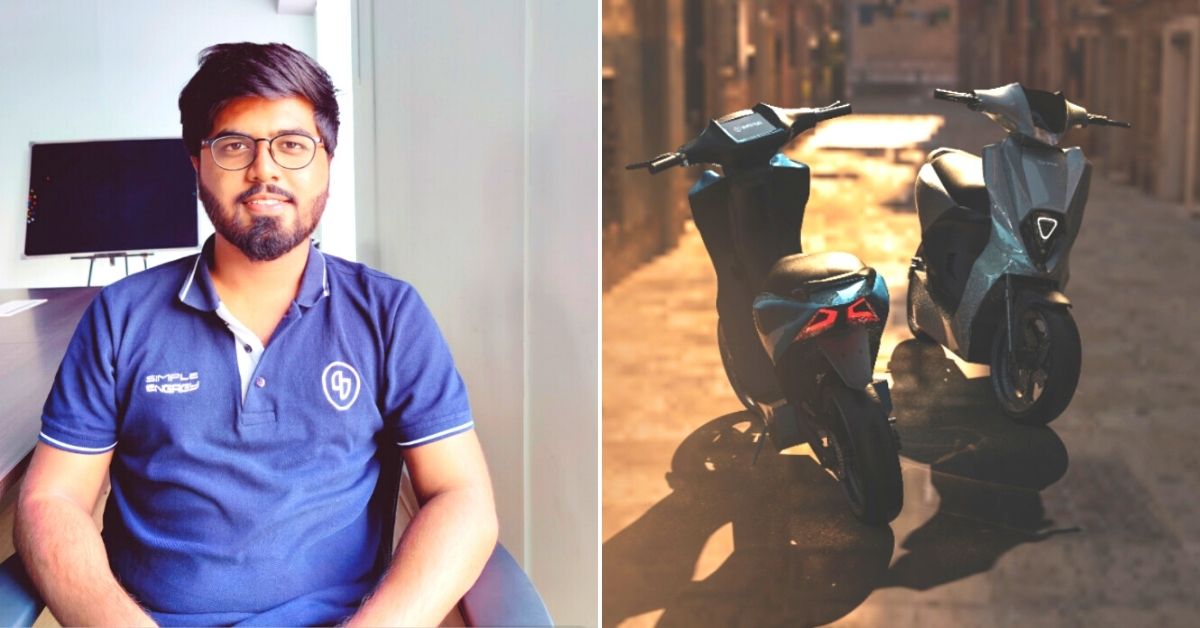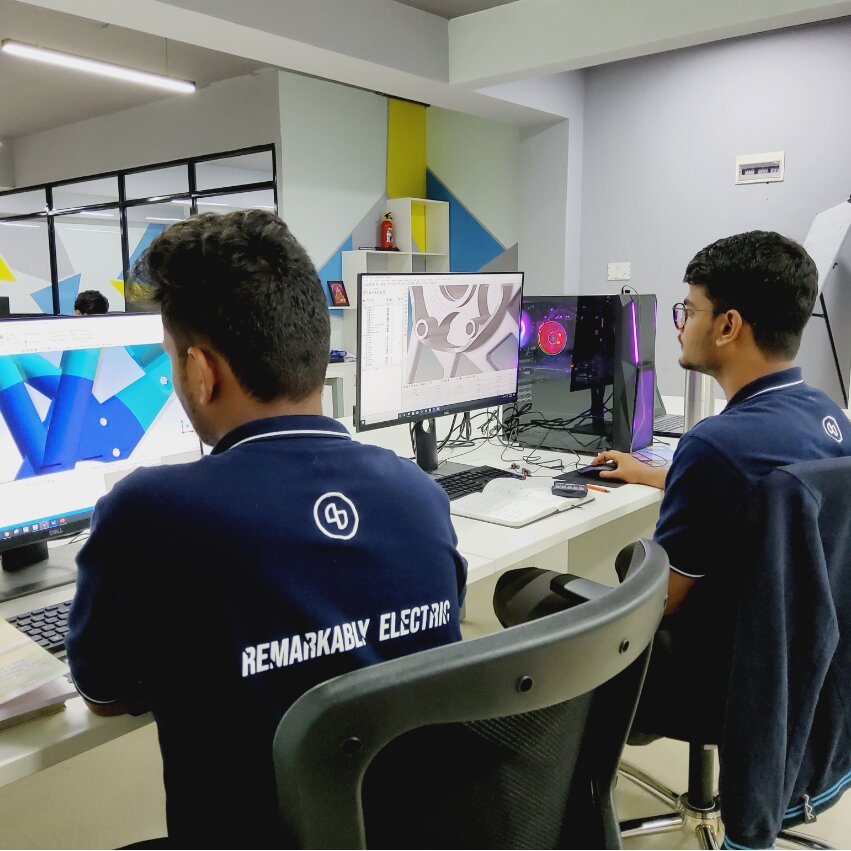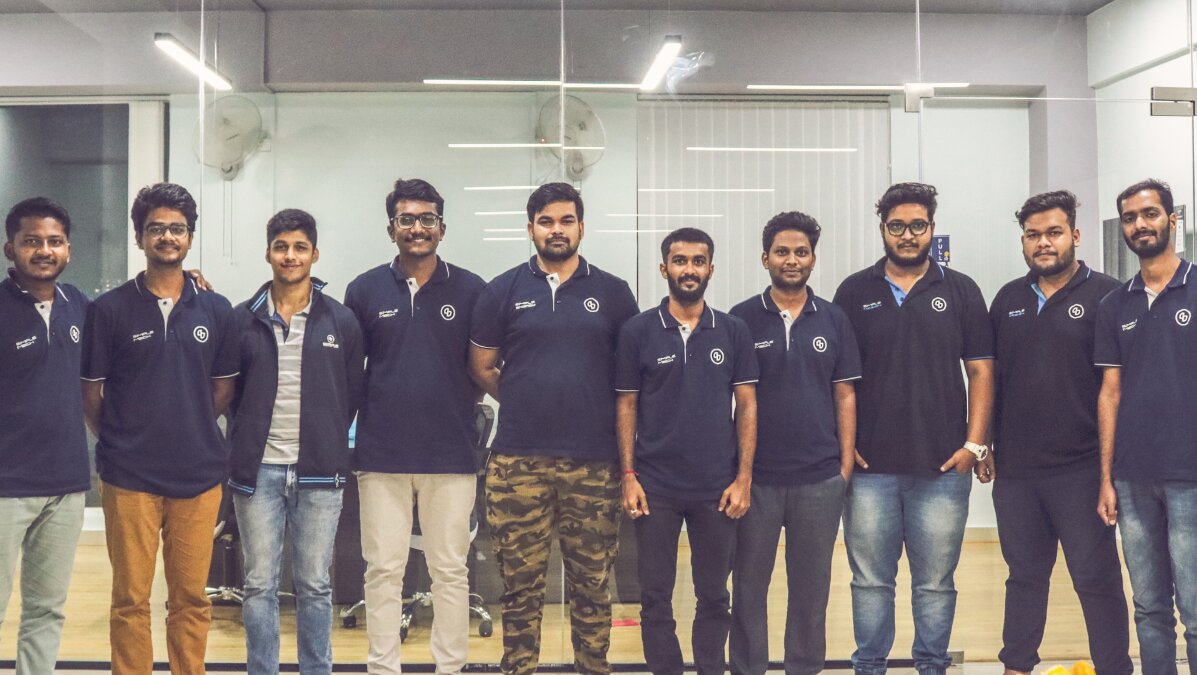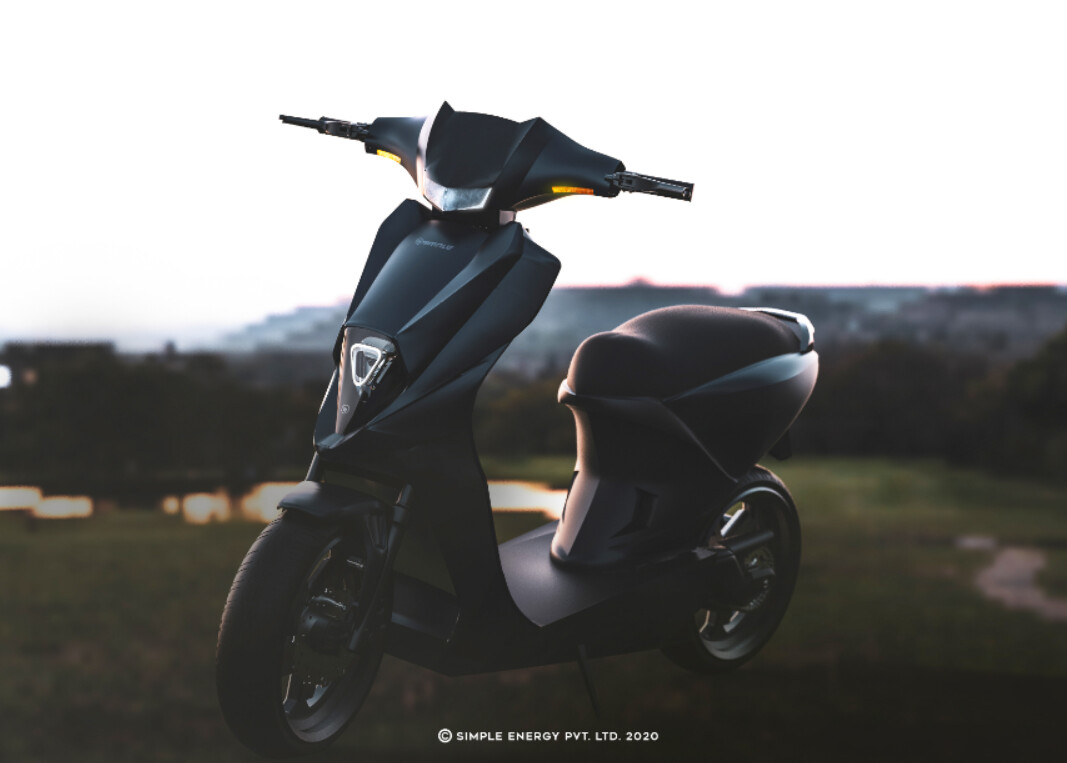This Startup’s Electric Scooter Offers a Whopping 240 KM on Single Charge
Bitten by the startup bug, Suhas Rajkumar started Bengaluru-based Simple Energy to come up with affordable, made in India EV scooter that will now compete with smart bikes. But his journey has been no mean feat.

Prior to establishing Simple Energy, a Bengaluru-based technology startup that is barely months away from launching its potentially industry-changing electric scooter, Founder and CEO, Suhas Rajkumar, ran three startups.
It was late 2018 when he had to close the last of three startups. He was out of funds at the time and living with his parents in Bengaluru because he had spent all his money running a robotics venture which didn’t take off.
With an academic background in architectural design and a passion for automobiles, particularly motorbikes, he spent his time at home reading up on Tesla and watching a couple of videos about their latest electric vehicle (EV).
“Watching and reading up on Tesla’s work in the EV domain was inspiring. So, I asked myself: Was there a company in India offering EV products of similar quality? Meanwhile, around that time, I took my father out to buy a scooter and persuaded him to look at EV options because it was more environmentally-friendly. I was taken aback when I couldn’t find an electric scooter that met the specific requirements. That really got me thinking,” Suhas tells The Better India.
Suhas then spent the next six months researching the EV sector, how these vehicles work, the development process, and learning the fundamentals of this industry. Thanks to his year-long experience working in robotics, he had some background in lithium-ion batteries, circuit boards, battery management systems, and other equipment.
“By this time a lot of EV players had come in. Although they were good at what they do, their EVs weren’t solving the core issues I had in mind which was primarily battery range and affordability. I was still not seeing EVs as a secondary vehicle option for anyone, including myself. Taking everything into account, I ventured full-time into the EV segment to build a two-wheeler with a range similar to an IC-engine vehicle. An IC-engine scooter with a full tank of petrol can run anywhere between 200-240 km on an average, and that’s the range we planned,” he recalls.

Following Through On a Vision
When he pitched the idea of a startup venturing into EVs, his inner circle initially laughed it off because of the capital required. Suhas had soon gathered some funds. Next was Shreshth Mishra, the eventual co-founder of Simple Energy, who Suhas has met through a common friend. Initially, Shreshth thought that Suhas’s idea was crazy and something he had never heard of.
So, what vision did Suhas present? It was:
● To build an EV from scratch that will be known for its design, performance, and range
● To make their mark as one of the best looking scooters in the world
● To offer maximum range
● To offer technical specialisation like IoT, and any other smart features
● To make a scooter that offers value-for-money for customers
“Over a few days, I convinced him of the merits of my vision and how we could build EVs that matched our expectations. Shreshth was our first investor in the company. After him I got other people I knew in the EV sector, mechanical engineers and other design buffs, to buy into my vision. Yes, I couldn’t promise them a salary for months. But I could convince them that they were on the ground of something game-changing. They bought into my vision. Despite having well-paying jobs at the time, they shared a genuine passion to work on EVs. So, I offered them a seat at the table as core founding members of the startup. Starting in early 2019, our team spent 13-14 months without pay,” says Suhas.
Kiran Poojary, Chief Technology Officer at Simple Energy, and one of its core founding members recalls, “My fascination with working in the EV sector saw me quitting my 9am to 6pm job. At that time, I met Suhas, who expressed a strong vision of addressing some of the key problems in the sector. I was not worried about getting paid because I had a passion for building EV bikes. My goal was to live up to the dream of building the best electric scooter rather than take a regular paycheck for work I wasn’t really passionate about.”
Other core founding members include Sheetal Shetty (Product Head), Pankaj Sable (Head of Mechanical Engineering), and Manjunath (Mechanical Head).
“Our founding members have successfully built prototypes, raised money, and are now looking forward to product launch. Months after he first invested, Shreshth began actively looking into administration, human resources, and marketing, while I started looking into product development, technology, and fundraising. Initially, half my team would work from home, while the rest and I worked out of my garage at home,” recalls Suhas.
With his parents having their home in Bengaluru, Suhas initially had a garage that they converted into the company’s first office. Starting from January 2019, they began working on the Mark 1 prototype of the EV scooter and incorporated the startup in September 2019 after getting their first serious angel investor on-board.
Despite some major hiccups along the way, they stuck together.
“By January 2020, the Mark 1 prototype was ready, offering a battery range of 200 km in initial testing. We had the working concept ready, pitched it to about 100 investors, and visited different VC offices. Many told us it was too early to invest and that they would rather get on-board the later stage. But by the time March came, we were about to receive an investment from an OEM. Unfortunately, they backed out at the last minute once the nationwide lockdown was announced that month,” says Suhas.
The only thing keeping them from not closing up shop was an undisclosed angel investor and core members who kept the startup afloat with their own money. But they needed a big chunk of capital to push their R&D into production. Simple Energy aimed to go into production with the technology they had built from the ground up.
“By May 2020 we got what we wanted and today we have closed Seed and Pre-Series rounds of funding and are on the cusp of closing Series A. Recently, Simple Energy has raised an undisclosed amount of pre-Series A funding from angel investors, including Vel Kanniappan, Thomas George, and four others. The startup is further looking to raise $10-12 million in Series A funding in the second quarter of this year,” notes Suhas.
Make In India Technology
“The team at Simple Energy aims at building the best EV in the country. Our EVs are completely Made in India except for the battery cells. This gives us the highest competitive advantage over other players in the market,” says Kiran Poojary, the CTO.
Except for the battery cells, Simple Energy claims to make every component of their EV scooter in-house, including their surface design and chassis design to battery pack development. Since they are a recently-incorporated startup and cell development takes a lot of capital, resources and time, they outsource it from different companies.
“We have developed our motors, controllers, battery pack designs, battery management system (BMS), inverters, suspensions, disc, gear ratios, sprockets, dashboard and the touchscreen on it, among other components, from scratch. We design, test and validate them in-house and mass manufacture them through third-party or already existing companies that can. So, more than 90% of our EV scooter is developed in-house. Our in-house technology development capability gives us the platform to develop better vehicles and churn out as many products as possible. All these components can be used in different applications besides EVs,” argues Suhas.
Battery Range, Affordability
The upcoming Mark 2 will be offered with a 4.8 kWh lithium-ion battery, a claimed range of 240 km in eco mode, top speed of 100kmph and 0-50 kilometres per hour acceleration in 3.6 seconds. Other key features a mid-drive motor along with a removable battery and futuristic design. It also comes with smart features like a touch screen, on-board navigation, bluetooth, etc. It will be launched either in May 2021 or sometime in the second quarter of the current financial year.
“In an IC-engine scooter, commuters can travel up to 200 to 240 km on a full tank of petrol. We wanted to address that by developing an EV scooter that offers a similar battery range. Commuters naturally have concerns about reliability if the EV scooter can travel only 60 km on a single charge with an underdeveloped charging infrastructure in our cities. Our task was to set a battery range so high that it doesn’t matter what the state of charging infrastructure is in your city. If you want consumers to transition from IC-engine to EV, we have to make that transition as easy as possible,” says Suhas.
On the subject of battery charging, Kiran notes that Simple Energy’s cell chemistry gives Mark 2 the option of fast charging from 0-100% in 40 minutes.
“We are developing fast charging technology for scooters as well. We will give our customers a charging kit along with our scooter although can’t comment now whether it would be a fast-charging kit or not. It has a removable battery which you can charge at home. The scooter is compatible with fast and slow charging systems,” he claims.
The scooter is likely to be priced anywhere between Rs 1.1 lakh to Rs 1.25 lakh.

“With respect to the specifications of the product and the design of the e-scooter, Simple Energy has created much anticipation amongst automobile enthusiasts. Today, we are very proud to have reached this position as a company. But, that doesn’t stop us. The team is united to stay on par with the goals of the company,” adds Kiran.
“Our ultimate objective is to develop and manufacture as much as we can in-house and fulfill the quest for Make in India. We are looking to drive EV adoption in India by offering affordable and premium solutions so that people don’t have to think twice before switching to EVs. Our second objective is to make India the engineering and design hub of the automotive world over Europe. We want to make EVs more marketable, appealing, and approachable in the eyes of consumers through our superior designs. Why should you buy a superbike, when you can buy a Mark 2 EV scooter?,” asks Suhas.
(Edited by Yoshita Rao)
Like this story? Or have something to share? Write to us: [email protected], or connect with us on Facebook and Twitter.
This story made me
- 97
- 121
- 89
- 167
Tell Us More
We bring stories straight from the heart of India, to inspire millions and create a wave of impact. Our positive movement is growing bigger everyday, and we would love for you to join it.
Please contribute whatever you can, every little penny helps our team in bringing you more stories that support dreams and spread hope.



















